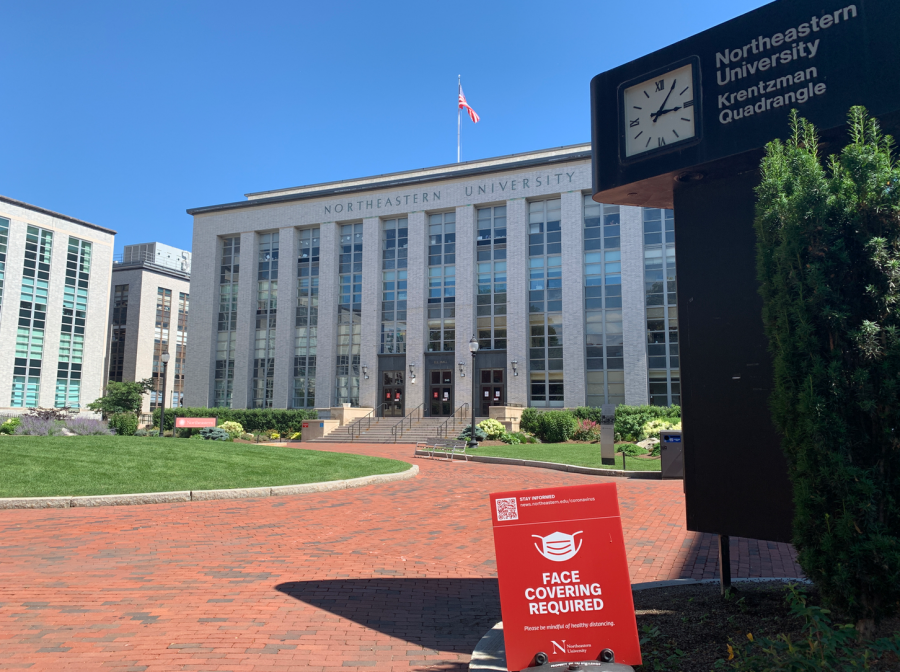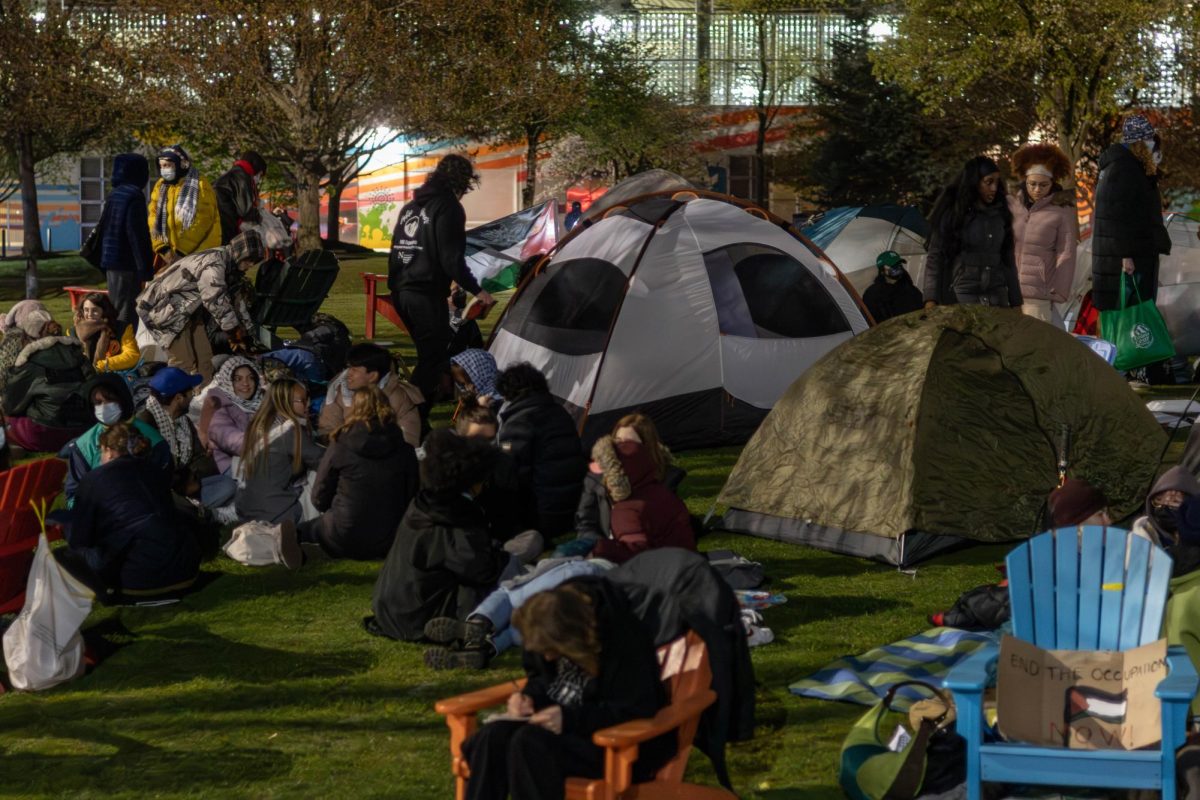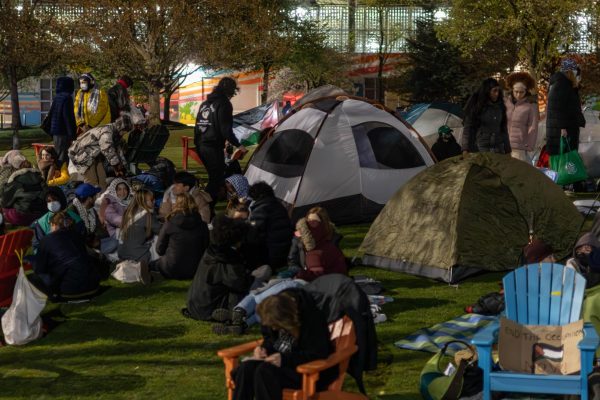Faculty senate discusses COVID-19 spread, updates to class scheduler
November 30, 2020
Northeastern’s faculty senate held a meeting Nov. 18 to update staff on upcoming changes to the virtual class scheduler, Information Technology Services and Snell Library. Two academic proposals for the university graduate program were passed as well.
In preparation for the spring semester, which will continue to be held via the hybrid NUflex program, Information Technology Services, or ITS, and university leadership are working to update and rework the class scheduler for students.
Cole Camplese, vice president for information technology and chief information officer, said the algorithm to select students for in-person class will be more precise according to students’ personal schedule. University spokesperson Shannon Nargi, the algorithm will now take into account individual class sections by day, meaning that students can opt in or opt out based on each time their class meets in a week, instead of opting in or out for an entire week.
These changes were implemented after receiving feedback from students, said David Madigan, provost and senior vice president for academic affairs.
“The students should come to class,” said Madigan. “We never want to heavy hand students, but the light hand is to encourage students to come to class.”
Michelle Laboy, an assistant professor of architecture, raised the point that for students it is inconvenient to do some classes on campus and then have to do some classes virtually the same day.
“When a student gets a seat in one class but not in another, they don’t want to come to campus,” Laboy said.
In response, Madigan acknowledged the feedback he was receiving from students in regards to the incompatibility. The updates to the scheduler, which now allow more precise choices for opting in and opting out each day, will target this issue in particular.
Camplese said the department has also created a Northeastern COVID-19 app, which allows students and staff to more easily access their daily wellness check and other necessary items from their phone. Nargi said the “distribution of the app is pending coordination with technical resources and app stores.”
Madigan also addressed the rise in positive COVID-19 cases on campus that began shortly after Halloween.
“We initially thought that it was a Halloween effect, of Halloween parties, but the contact-tracing is telling us that it’s not the case,” he said.
Madigan said data collected from contact tracing, which is translated onto a heat map visualizing where the cases are, indicates that the cases are mostly from students off-campus and are unrelated to one another.
“Since the beginning of November, there has been a moderate rise of positive COVID-19 cases within the Northeastern community. The university’s contact tracing has not found transmissions related to campus activities,” Nargi wrote. “The positive cases have been primarily among students living off campus, and the rise in numbers can be attributed to the rise in cases throughout the city of Boston. Our comprehensive testing, contact tracing and quarantine and isolation program has allowed us to quickly identify and contain these cases and keep our community safe.”
Dan Cohen, dean of libraries, also gave updates on the remaking of the library during COVID-19 and beyond, including some of its current services as well as plans for future renovations.
Celebrating the 30th anniversary of its opening, Snell Library will be anticipating a generational refresh. Cohen mentioned that it will be a multi-tier, multi-year process and that current plans for the reworks are still in the early phases. These changes will look to create space for new forms of collaboration, as well as increase seating capacity in the building.
During the meeting, two motions of academic proposals for graduate programs were also passed.
Yakov Bart, associate professor of marketing, and Tucker Marion, associate professor of technological entrepreneurship, proposed the establishment of the Master of Science in Management in the D’Amore-McKim School of Business in order to develop a framework for master’s programs that give students flexibility to better meet market needs.
The other motion was proposed by Rhonda Board, associate professor and director of the Ph.D. program, to establish the Master of Science in Applied Nursing Research in the Bouvé College of Health Sciences. The proposal creates a Ph.D. exit program for those who cannot complete the program but want to receive a degree for the time they have put in. This program would only be provided for students with 30 or more credits already.
Both motions passed with no votes against or abstaining, and were also approved by the University Graduate Council Oct. 28. The courses are expected to launch in the fall of 2021.


















